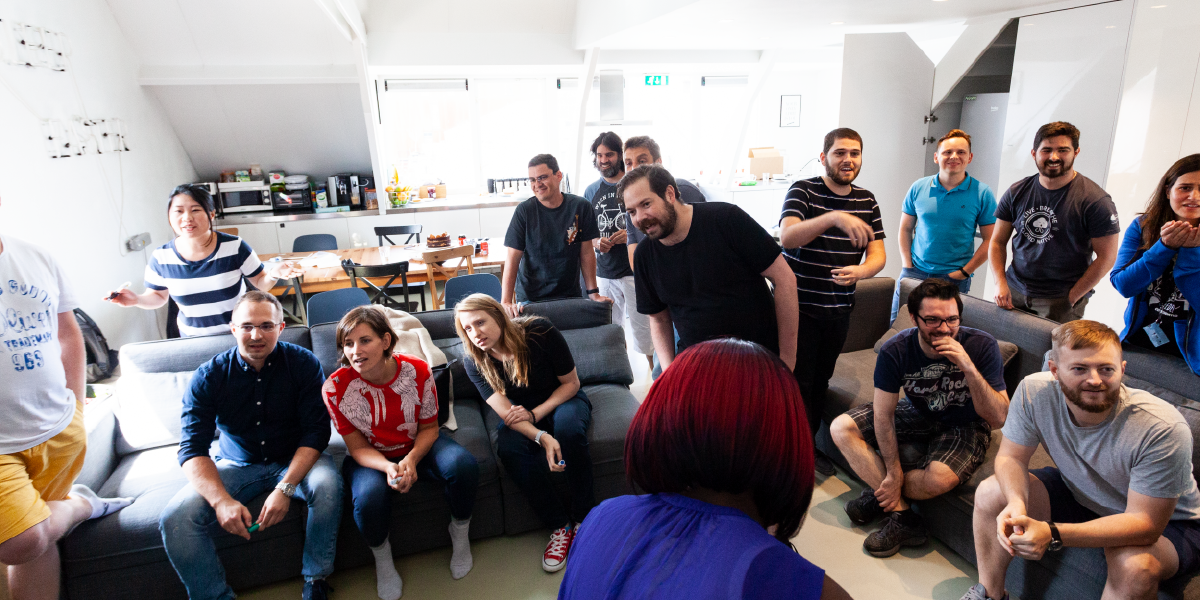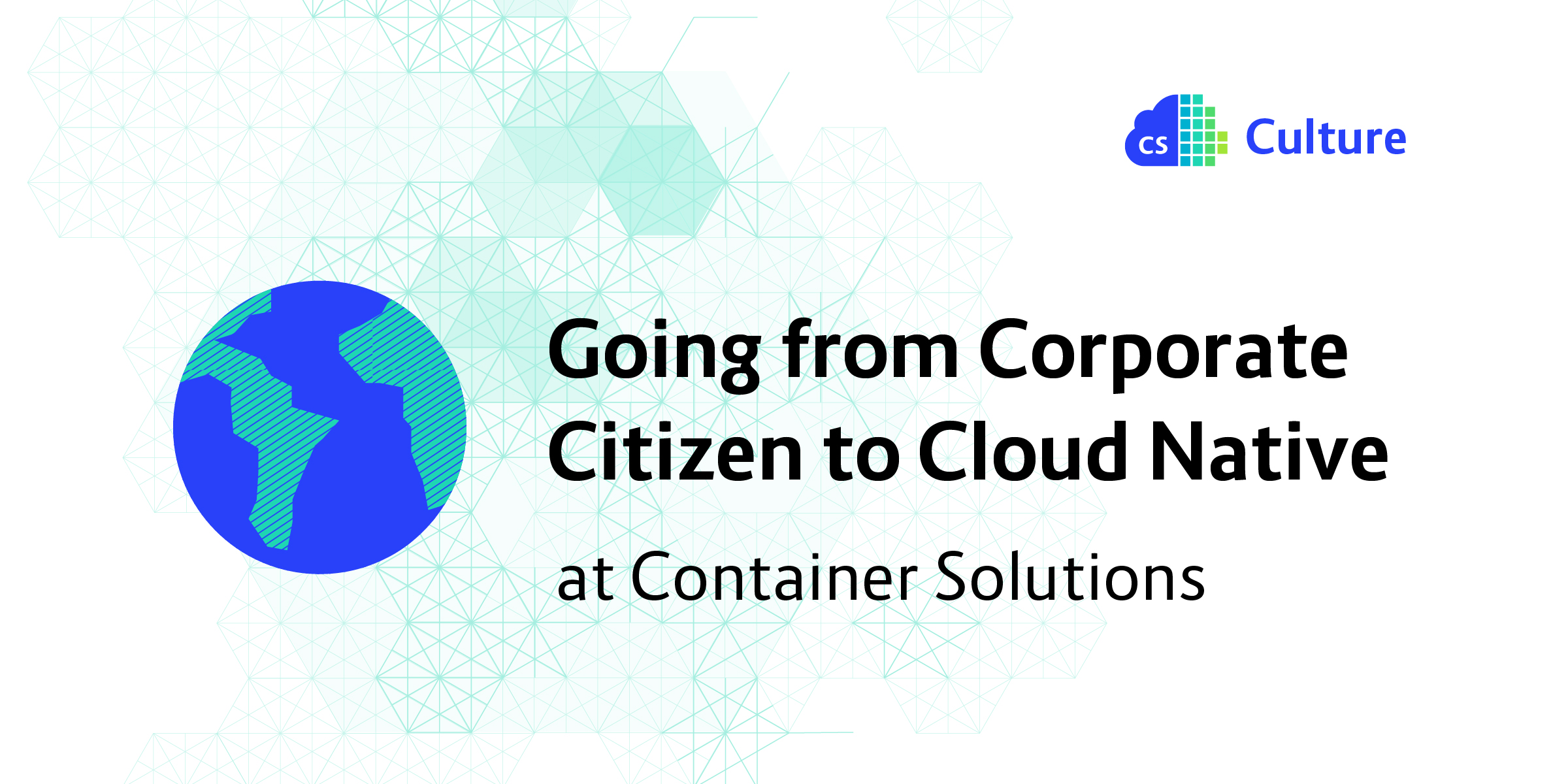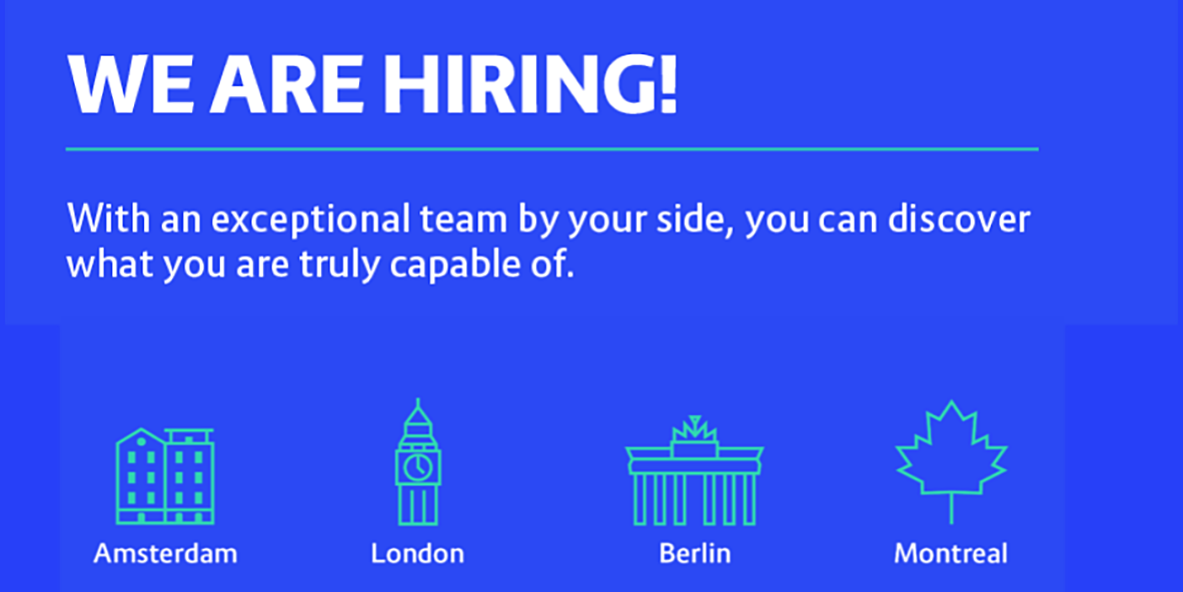About four months ago I left my cushy enterprise job in sales at Oracle to go work as a Cloud Native engineer at Container Solutions.
You’d think going from a 140,000 people company to one that just hired their 70th employee would be a huge culture shock. So did I. Any job change brings tradeoffs, but I had some concerns going from a large established business to a smaller, younger one. Would it be more chaotic or stressful? Would the expectations of myself and my work change?
Turns out next to some obvious changes, there are a surprising number of similarities and a few differences that I was surprised by. While some of the differences can be explained by me moving from a Sales organisation to a Cloud Native consulting business, others are caused by the company cultures themselves.
Onboarding
It starts with how you get to know the company, the people, and even the office.

At Oracle you get a long, long checklist of services to sign up for, videos to watch (you haven’t suffered through understood corporate culture unless you had to watch hours and hours of mandatory policy/sexual harassment/workplace ethics videos), more boxes to check, and additional equipment to order.
At CS, there was still some ordering of technical equipment and checking of certain boxes that needed to be done. But the checklist was a lot shorter and so much more flexible. No long ordering processes, no overly bureaucratic policies to follow. The only ‘video training’ I received was this:
The group onboarding process at Oracle involved three weeks in Dublin, with many presentations, product information sessions, video challenges, group work, and fun exercises sprinkled in between.
CS keeps its onboarding process shorter, at three days. Onboarding here is a lot more interactive and focussed on sharing the company values and getting you to feel like a part of the company’s future. And there’s nothing like a few games of laser tag or Cloud Native Pictionary to get to know your colleagues better.
While both events were fun for me personally, CS seems to care more about new employees understanding how the company itself works, rather than just training you to echo a set of values without explaining why. Even new hires at CS are asked for feedback continuously, to keep improving how everything works.
People and Culture
The people at Container Solutions have been incredibly nice and always open to help. You’re not judged for stupid questions or mistakes (as long as you own up to them). You can feel the support all around. The workforces at both Oracle and CS offices share similar age ranges and a large degree of internationality. Both encourage a healthy work-life balance for their employees, which can also be partially explained by Dutch working culture.
A fact that might be surprising to some is that my positive experiences with the colleagues at CS are not really all that different from Oracle. There, the mantra was that you could ask anyone anything, anytime. Via Slack, email, or phone, anyone is encouraged to reach out to colleagues for help, even if they are complete strangers at that point. Generally you’d have more luck with some people than others, but that is just a fact of life. The same applies to CS.
What changed for me, though, is the kind of network you have. At Oracle there is usually another Oracle person to help. But at CS, the open-source community serves as a big net of knowledge around you. The support is there, you just need to reach out.
CS also gives you more freedom to be yourself, to work in ways and at times when you work best, and to dress the way you feel comfortable. The company will support any kind of technical, business, or personal learning (buy any book you need/want, have a mentor, get training, go to conferences, and so on). Some of these Oracle provides as well, but they are far more strict about everything being company-focused or relevant to a current project.
Work
The work itself is measured quite differently at my current and previous companies. At Oracle the idea was to book a certain percentage of hours on working with customers and a certain percentage on training. There were specific key performance indicators and goals to be reached. At times, it seemed that the numbers seemed to matter more than the actual work.
CS puts more emphasis on maintaining happy, healthy, and balanced employees while getting the job done well. However, we are held accountable for what we do: Every few months each team, and the organisation overall, works on its Objectives and Key Results (OKRs), which are a way of setting goals throughout the entire company.
As a new employee, you have a mentor for your first few months (who helps you set your own goals) and a coach available when needed.
There are evaluations on a project basis, but they are more focussed on the continuous improvement of work and skills.
The day-to-day work at Oracle can be hindered by deep hierarchies, slow responses, or misunderstandings of responsibilities. Waiting for weeks to book a training because your approval is stuck somewhere can make you feel somewhat irritated with the process. The possibilities for employees to create actual change are limited.
CS is more fast-paced, and the responsibilities are simply more flexible. You don’t always have to wait for approvals or permission, but you also are expected to act when you see the need to do something.
The goal is not just to improve ourselves and our skills, but also the company as a whole, continuously—living DevOps practices at work. You can have an actual impact this way.
A Safe Place to Experiment
One part I found strange at first, but have grown to appreciate to the fullest is the concept of psychological safety. Container Solutions wants you to feel safe to try and experiment, to make mistakes and learn from them and not be scared of repercussions or being blamed for something going wrong. This gives a certain freedom to employees, supporting all kinds of innovative ideas, from open-source projects and hackathons to leadership and diversity groups.
So if you’re reading this because you’re thinking of taking the plunge and switching from a larger company to a smaller one, my advice would be to figure out a few things about yourself, your expectations, and your way of working first.
How engaged and independent are you? How comfortable are you working within a flat hierarchy? Do you want to be able to influence processes around you? Do you want to grow your skills and learn new ones for the sake of learning?
Keep in mind that a culture like ours might not be for everyone, and some people might not feel comfortable with the level of autonomy that is expected.
Personally I can say that my initial concerns about leaving corporate life were largely unfounded, but if you’d like to hear more or even tell me about your experiences, feel free to contact me by email or Twitter.
Photo of CS onboarding session by Mickey Houlder.



 Previous article
Previous article
